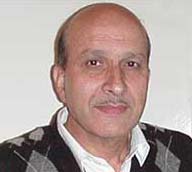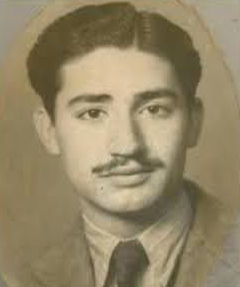Prof Mohammad Ishaq Khan
(1946 – April 05, 2013)
 A foremost historian of Kashmir, Mohammad Ishaq Khan breathed his last on Friday. The deceased was hospitalized after developing some chest complication a few days ago.
A foremost historian of Kashmir, Mohammad Ishaq Khan breathed his last on Friday. The deceased was hospitalized after developing some chest complication a few days ago.
The deceased was formerly Dean Academics, Dean, Faculty of Social Sciences and Head, Department of History at Kashmir University. After his superannuation in 2005, he first became the Director of the newly founded Centre for Kashmir Studies and later held the Shaikhul Alam Chair at Kashmir University until August, 2008.
Ishaq Khan is the son of a prominent businessman, Ghulam Ahmad Khan. His wife, Mahmooda Khan, taught English at the Tyndale Biscoe Memorial School, Srinagar. His eldest son, Mohammad Aamir Khan works at The Tribune Newspaper.
Ishaq Khan completed his PHD in 1975. He is the first PHD of Kashmir University in the Faculty of Social Sciences. He was Professor of History at Kashmir University from 1988 to 2005 after serving the same university as Lecturer (1970–1982) and Reader (1982–1988).
He was nominated as Member of the Indian Council of Historical Research by the Government of India, and presided over the Punjab History Congress (Medieval Section) in 2001. He was elected to Senior Leverhulme Fellowship by the Oxford Centre for Islamic Studies in 1992, and was also offered a fellowship by the Saint Cross College, Oxford University.
The noted Indian Professor of English and former Vice-Chancellor of Delhi University (South Campus), G.K. Das, describes Ishaq Khan as a “poet philosopher”. Ishaq Khan supported Gen Mushraff’s views on Kashmir. Although love for independent Kashmir is reflected in his poetical compositions, Ishaq seemed to favour the realistic solution of the Kashmir problem within the framework of the Indian constitution.
His books and research articles have received critical recognition in prestigious academic journals of international repute in India and abroad.
Agha Shaukat Ali
(January 1, 1922 – March 19, 2013)
 A Kashmir born, Agha Shaukat Ali passed away on March 19th, in Virginia. He was 91, and is survived by his two brothers, Agha Nasir and Agha Ashraf, who still reside in Kashmir. He is also survived by his children, Tehmina Khan, Agha Azhar Ali, Rabia Ali as well as his daughter-in-law, Shehrezade Ali.
A Kashmir born, Agha Shaukat Ali passed away on March 19th, in Virginia. He was 91, and is survived by his two brothers, Agha Nasir and Agha Ashraf, who still reside in Kashmir. He is also survived by his children, Tehmina Khan, Agha Azhar Ali, Rabia Ali as well as his daughter-in-law, Shehrezade Ali.
His personal life was intertwined with significant cornerstones of history. Born to a political family, he attended the prestigious Aligarh University in the 1930’s.
During the end of the British colonial rule in India, Agha Shaukat joined the Kashmir Muslim Conference as a founding member, at the request of Mohammed Ali Jinnah, the founder of Pakistan. Most notably, Agha Shaukat held a public gathering in defiance of the prevailing prohibitions at the time, and was imprisoned for political reasons from 1946-1949.
Upon the founding of Pakistan in 1947, Agha Shaukat’s release from prison was brokered by the United Nations. He was released as part of an exchange of political prisoners between India and Pakistan. Leaving his mother and brothers in Kashmir, Agha Shaukat was the only member of his immediate family who moved to Pakistan, where he joined his young wife. They lived in Lahore and had four children.
Agha Shaukat attended the Woodrow Wilson School of International Affairs at Princeton University as a Fulbright Scholar. His enjoyed his time in the United States in the 1950’s and returned to his alma mater on many occasions.
He has authored a book, “The Modernization of Soviet Central Asia,” and was invited by the government of China to share his predictions regarding the implications of lifting the Red Curtain in 1979. He founded the Iqbal-Shariati Foundation in Lahore, which funded the translation and publication of the works of Sir Mohammed Iqbal and Ali Shariati, two poet-philosophers whom he greatly admired.
He visited Kashmir twice—1963 and 1979. In 1963, in a private talk with some academics he rued the factional Sher-Bakra fight. Of the 1963 Bhutto-Swaran talks, he said that instead of self determination finding expression in plebiscite, alternative forms of expression were being explored.
The grapevine has it that he had a hand in how Musharaf’s thinking evolved on Kashmir—an out of box peaceful solution devoid of violence.














